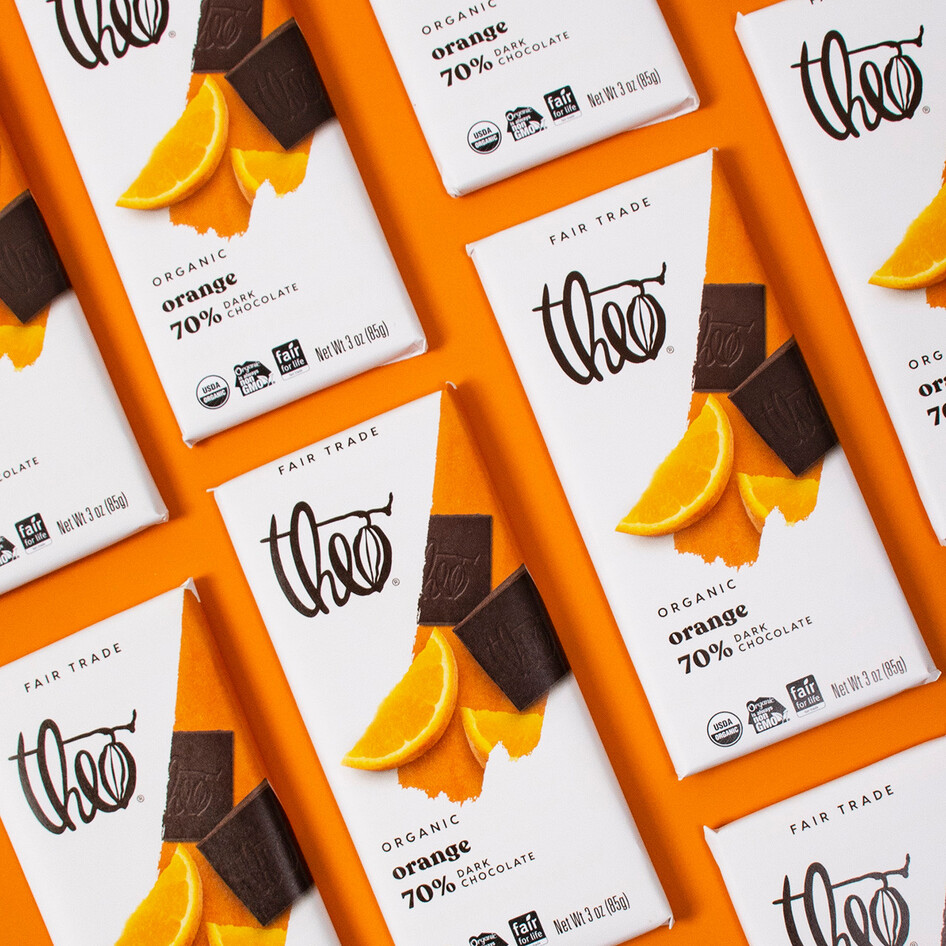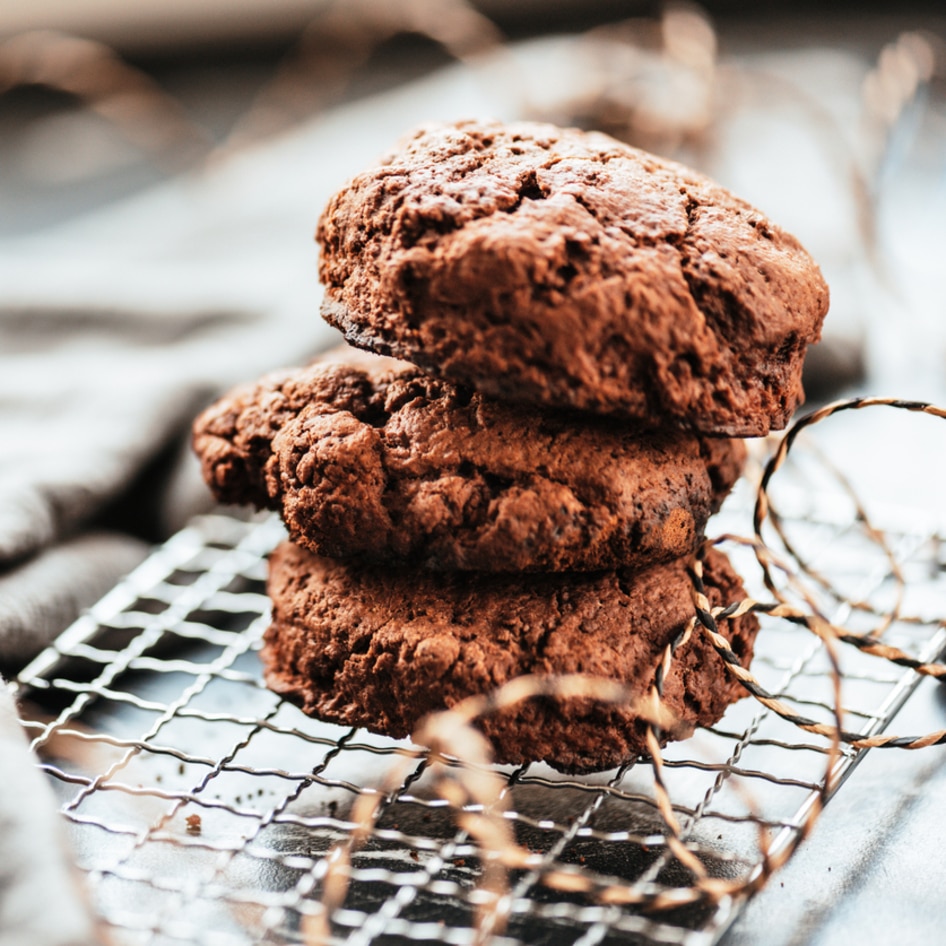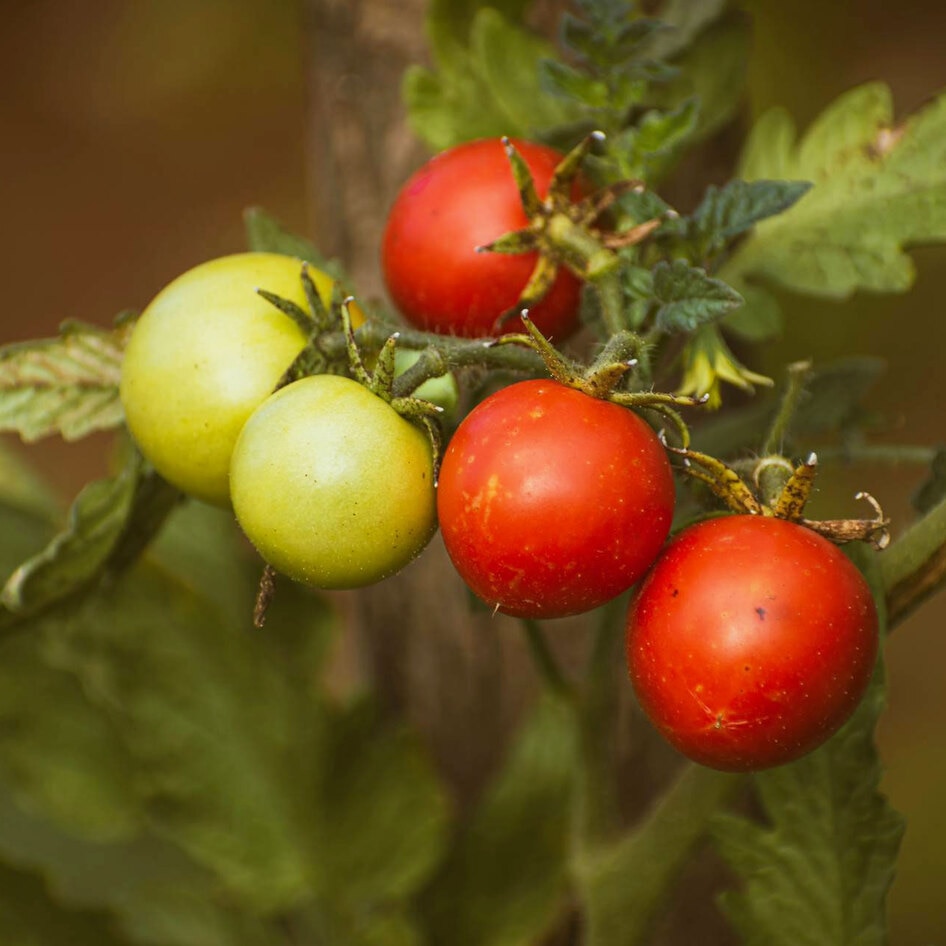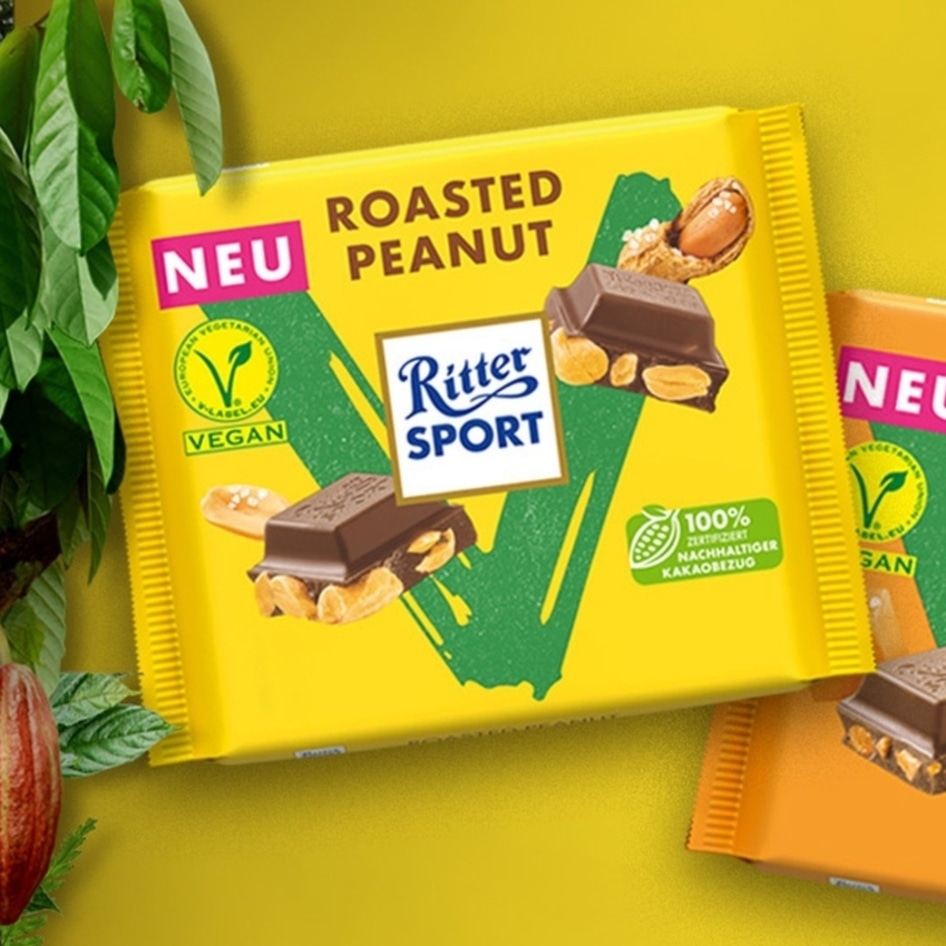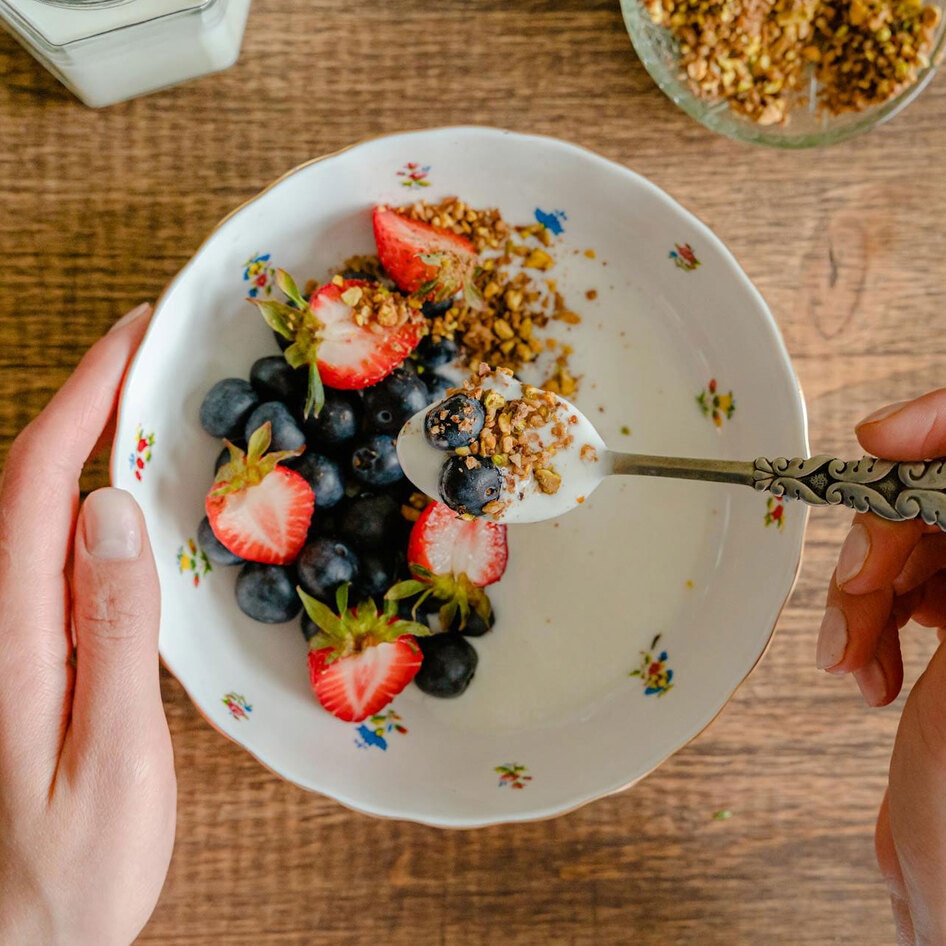Right now, food waste is one of the world’s biggest problems. In fact, every single day, around one-fifth of the food we produce for human consumption is completely lost. According to the World Food Programme, that’s the equivalent of around one billion meals a day.
Several industries are to blame for this monumental figure. Producers of potatoes and cheese both waste significant amounts of food, for example. But cocoa, without a doubt, is one of the worst offenders. In fact, the cocoa industry wastes around 700,000 tonnes every single year. But new research could change everything.
In Switzerland, food scientists from the Federal Institute of Technology in Zurich have developed a new cocoa processing method to reduce waste and support cocoa growers everywhere. The answer, they say, is juice.
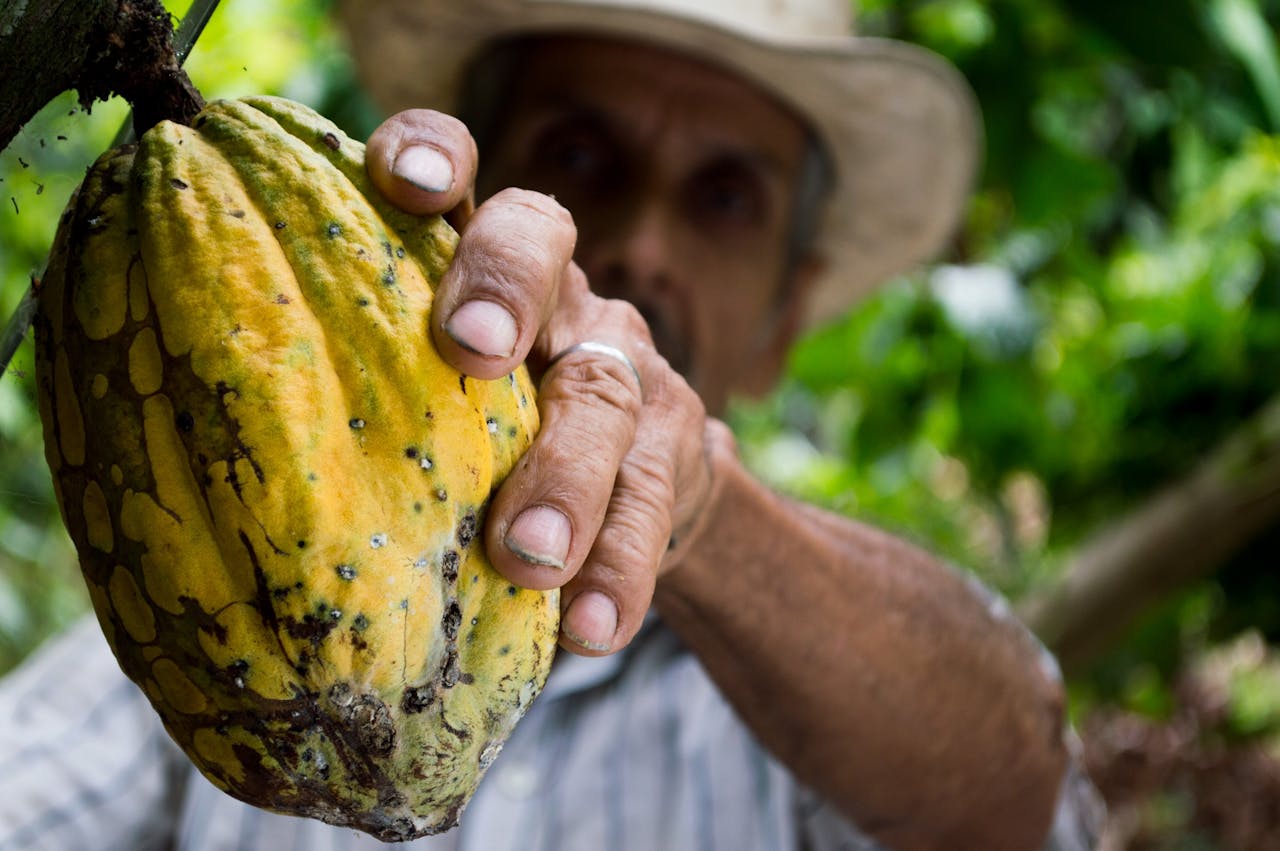 Pexels
Pexels
How Swiss researchers are reducing waste in the chocolate industry
Cocoa beans are the most important ingredient in chocolate. They are harvested from cocoa trees across Africa (around 70 percent of the world’s cocoa beans come from Ivory Coast, Ghana, Nigeria, and Cameroon) before they are processed into solids and butter—the key components in chocolate.
The rest of the cocoa fruit isn’t very useful to the chocolate industry, so it gets thrown away. Roughly 75 percent of the cacao fruit is discarded during cocoa production.
“It’s like you throw away the apple and just use its seeds,” Anian Schreiber of the sustainable cocoa startup KOA, who was involved with the new research, told the BBC. “That’s what we do right now with the cocoa fruit.”
Now, Zurich researchers maintain they have found a way to use more of the fruit and reduce significant amounts of waste in the cocoa industry. It’s relatively simple: the parts of the cacao fruit that would usually be thrown away are juiced and processed into a concentrated syrup. This syrup is then combined with the pulp of the fruit and the dried husk to create a cocoa gel that is just as sweet as refined sugar.
This means that, in the future, there might be no need to add additional sugar to chocolate products. Instead, it could all come from the cacao juice. According to BBC reporter Imogen Foulkes who had the chance to try the low-waste chocolate, the taste can compete with refined sugar options.
“[It’s] surprisingly good,” she wrote. “A rich, dark but sweet flavor, with a hint of cocoa bitterness that would fit perfectly with an after-dinner coffee.”
Lindt has reportedly started using the new processing method, alongside some other Switzerland chocolate producers, but none have totally eliminated refined sugar from the recipe yet.
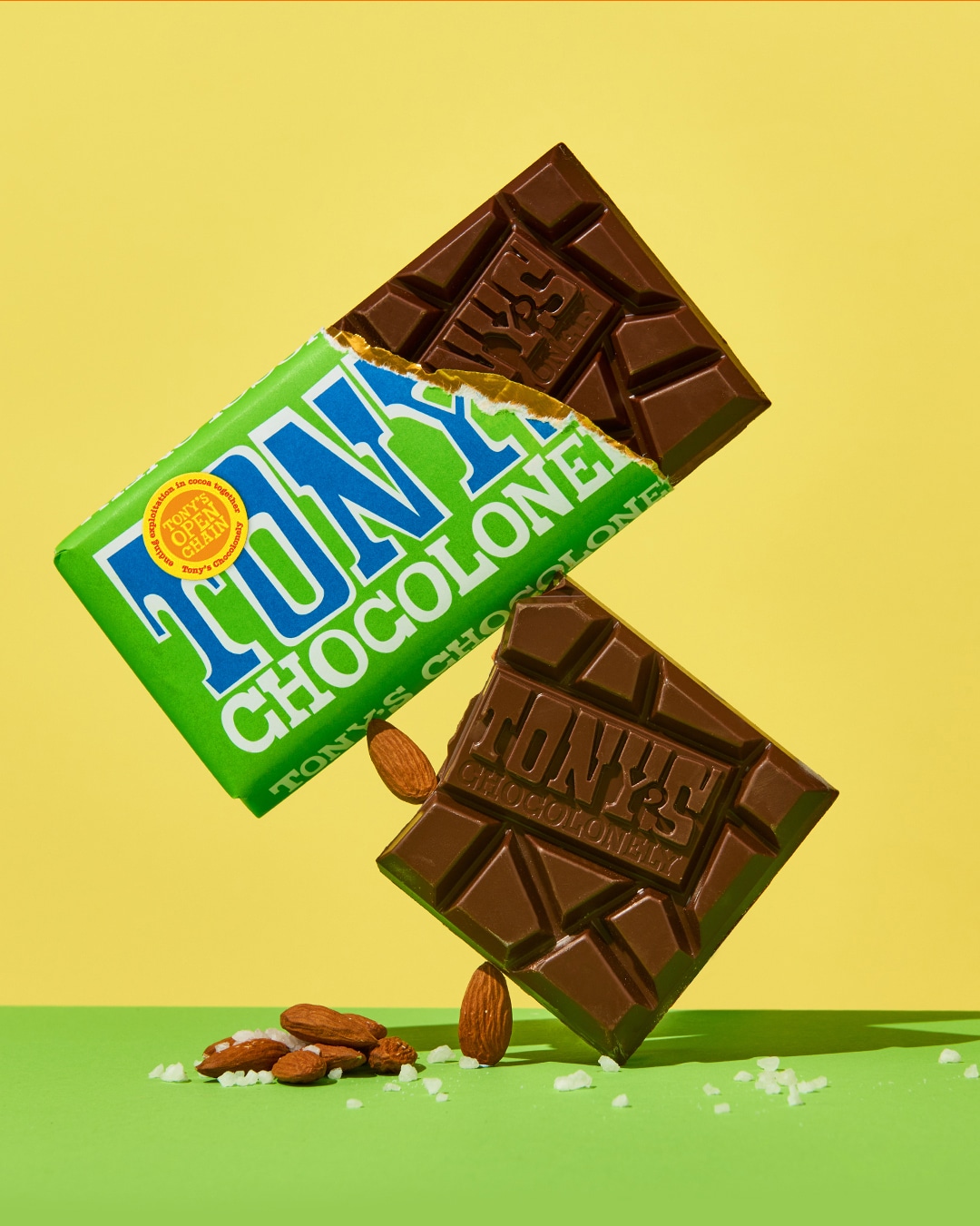 Tony’s Chocolonely
Tony’s Chocolonely
BECOME A VEGNEWS VIP: Get exclusive product deals, freebies, and perks galore!
The challenge to produce ethical, eco-friendly, low-waste chocolate
While the new syrup processing method is undeniably a big step toward reducing cocoa waste, the industry is still fraught with problems, including child labor and slavery. In 2020, one report published by the US Department of Labor suggested that an estimated 1.56 million children worked on cocoa farms in Ghana and the Ivory Coast.
At the end of 2023, another report from Ethical Consumer criticized several leading chocolate brands, including Mars, Nestlé, and Cadbury’s owners Mondelēz, for having “inadequate” ethical standards.
“Most of the world’s chocolate is grown in West Africa, and the conditions for farmers are in general really appalling. But it’s European and UK consumers who eat most of it,” Jasmine Owens of Ethical Consumer told the Guardian.
“We really do have a huge amount of power and responsibility over conditions for farmers in West Africa because we’re the reason why they’re harvesting the cocoa.”
Indeed, in 2020, research from the British Heart Foundation noted that the average Brit will eat around 7,560 chocolate bars, 2,268 slices of chocolate cake, and 8,316 chocolate biscuits in a lifetime. The US is also a nation of chocolate lovers. According to Statista, more than 268 million Americans consumed chocolate and other types of candy in 2020.
Consumers can help to drive up demand for more ethical chocolate by choosing brands like Tony’s Chocolonely, which is renowned for its commitment to maintaining a 100 percent slave-free supply chain, and Divine, for example, both of which are recommended by Ethical Consumer.
Brands like Alter Eco and Endangered Species are also known for their commitment to the environment and ethical chocolate production. The latter donates 10 percent of the profits to support wildlife and at-risk habitats all over the world.
However, Zurich researchers also hope that their breakthrough cacao processing method will help make the wider industry more ethical. It will reduce waste, of course, but it will also allow farmers a bigger source of income.
“Instead of fighting over who gets how much of the cake, you make the cake bigger and make everybody benefit,” said Schreiber. “The farmers get significantly extra income through utilizing cocoa pulp, but also the important industrial processing is happening in the country of origin. Creating jobs, creating value that can be distributed in the country of origin.”
For more plant-based stories like this, read:
JUMP TO ... Latest News | Recipes | Guides | Health | Shop

.jpg?sha=94ef851f6e4a1cf1)

